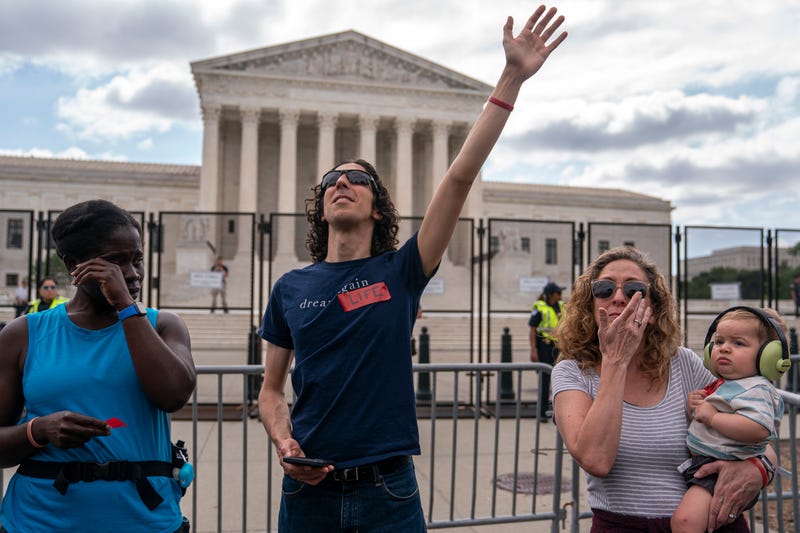
Buffalo, N.Y. (WBEN) - The constitutional right to abortion is no more as the United State Supreme Court has ruled to overturn the benchmark decision of Roe v. Wade, a decision that has been the precedent for abortion rights for nearly 50 years.
This decision was expected, as there was a leak a month ago of a draft by Justice Samuel Alito stating there is a majority who would favor to overturn the decision. The decision Friday was made as a result of a dispute over a 2018 law passed by Mississippi’s Republican-controlled Legislature that banned abortions after 15 weeks.

"Even though that I knew it was coming, I'm completely devastated. I keep thinking about the individual people that this is going to affect and how it's going to have lifetime consequences for so many," said Michelle Casey, President and CEO of Planned Parenthood for Central and Western New York.
Abortion care is relatively safe in New York State. However, this Supreme Court decision will ultimately take a toll on New York as it is expected that many not Americans not from New York will come to New York for abortion services.
"I think what it means is that we'll be seeing people from other states to try to help them. But the grim reality is, is a lot of people don't have the financial ability to travel or the time or other factors that impact us. So there's going to be a lot of people, I think it's around 40% is the estimate that will not get the care that they want need," said Casey.
Casey also adds that they are making room at their facilities for more patients, "We're expecting increased volume for abortion care at our clinics, and we're doing everything we can to make sure that we have the ability to see people. We've just recently expanded our facility in Buffalo on 60 East Amherst Street. We've doubled the size of our family planning and number of family planning rooms and added in clinic abortion space. That goes a long way to helping serve the public. We have four health centers in the Western New York area and we expect a lot of traffic from Ohio in particular."
Ohio signed a law known as the heartbeat bill which would have banned abortions once a fetal heartbeat was detected (six weeks). A federal judge blocked that law from taking effect, but now Attorney General Dave Yost has filed a motion to lift that stay. It's unclear when or if that bill will take effect.

